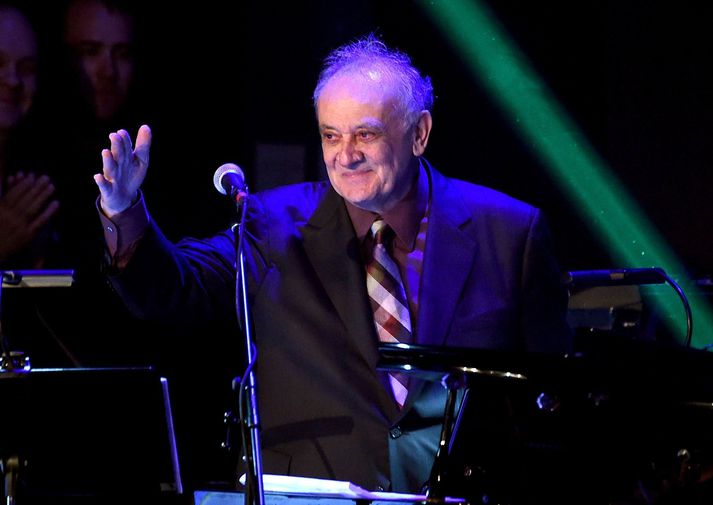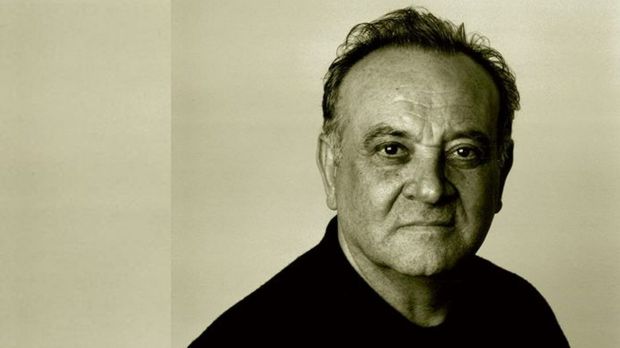
Life and Death of Angelo Badalamenti
Angelo Badalamenti was a legendary composer, arranger, and orchestrator, best known for his haunting and evocative musical scores for film and television, particularly his collaborations with the filmmaker David Lynch. His work has transcended genres and left a lasting mark on both popular culture and contemporary music. His life, marked by extraordinary artistic achievements, and his death in 2022, left a profound legacy that continues to influence both the music and film industries.
Early Life and Musical Beginnings
Angelo Badalamenti was born on March 22, 1937, in Brooklyn, New York, to a Sicilian-American family. From a young age, he displayed an aptitude for music. His family, recognizing his talent, enrolled him in piano lessons when he was eight years old. His early training laid a strong foundation for his future work in composition, arranging, and orchestration. Badalamenti’s love for music deepened throughout his childhood, and he was especially drawn to jazz and classical music, which influenced his later works.
Badalamenti pursued formal education in music, attending the Eastman School of Music in Rochester, New York, where he received a solid grounding in music theory, orchestration, and composition. He later transferred to the Manhattan School of Music, where he earned a bachelor’s degree in 1958 and a master’s degree in composition in 1960. During this time, Badalamenti honed his skills in classical composition while maintaining an interest in popular music and jazz, an eclectic mix that would become a hallmark of his signature style.
Early Career: From Pop Music to Film Scoring
Angelo Badalamenti began his career as a composer and arranger for pop and jazz artists, often working under the pseudonym Andy Badale. He collaborated with singers like Nina Simone, Shirley Bassey, and Nancy Wilson, providing arrangements and conducting for their albums. His work during this period demonstrated his ability to merge genres seamlessly, blending orchestral elements with popular music, which would become a defining characteristic of his later film scores.
While his work as a pop arranger gave him a solid foothold in the music industry, it was his transition into film and television scoring that marked the beginning of his most iconic period. Badalamenti’s first foray into film came when he scored the music for the 1973 film Gordon’s War. This experience planted the seeds for his future in cinematic composition, though it would take several more years before his distinctive voice as a composer would emerge.
Breakthrough Collaboration with David Lynch
The defining moment of Angelo Badalamenti’s career came in the mid-1980s when he began working with director David Lynch. Their collaboration would revolutionize both television and film music, creating some of the most memorable soundtracks in cinematic history.
Badalamenti first worked with Lynch on the 1986 film Blue Velvet. Initially brought in to help singer Isabella Rossellini with her performance of the song “Blue Velvet” for the film, Badalamenti ended up composing the entire score. His work on Blue Velvet set the tone for the atmospheric, haunting, and surreal soundscapes that would characterize his collaborations with Lynch. The score combined traditional orchestral elements with eerie, electronic textures, perfectly complementing Lynch’s disturbing yet dreamlike visual aesthetic.
.
.
Their most famous collaboration, however, came with the television series Twin Peaks (1990-1991). Angelo Badalamenti’s score for Twin Peaks is widely considered one of the greatest television soundtracks of all time. The show’s haunting, ethereal main theme, which won a Grammy Award in 1991, became iconic, capturing the eerie beauty and unsettling nature of the show. The score perfectly reflected the surreal, otherworldly atmosphere of Twin Peaks, blending jazz, orchestral, and synthesized sounds to create a soundscape that was both nostalgic and futuristic.
One of the most notable aspects of Badalamenti’s Twin Peaks score was its emotional depth. While Lynch’s visuals often leaned toward the absurd or macabre, Badalamenti’s music grounded the show in a deeply human emotional core, particularly with the “Love Theme,” which conveyed a sense of melancholic longing and sadness. The emotional resonance of Badalamenti’s music allowed Twin Peaks to explore a broader range of themes, from horror to romance, and it played a crucial role in the show’s success.
The Badalamenti-Lynch collaboration extended beyond Twin Peaks, as the two continued to work together on films like Wild at Heart (1990), Lost Highway (1997), The Straight Story (1999), and Mulholland Drive (2001).
In each of these films, Angelo Badalamenti’s scores played an essential role in establishing Lynch’s distinct cinematic universe. His ability to craft music that mirrored the psychological complexity and surreal nature of Lynch’s work solidified him as a master of film scoring.
Versatility Beyond Lynch
Although his collaborations with David Lynch brought him the most fame, Badalamenti’s career was not limited to working with the auteur director. He composed music for a wide variety of films, including A Nightmare on Elm Street 3: Dream Warriors (1987), National Lampoon’s Christmas Vacation (1989), and The Beach (2000). These projects showcased his versatility, as he adapted his style to fit the needs of different genres, from horror to comedy to drama.
One of his notable works outside of his collaboration with Lynch was his score for the 1995 film The City of Lost Children by French directors Marc Caro and Jean-Pierre Jeunet. The score blended elements of circus music, classical composition, and electronic sounds to create a dark, fantastical atmosphere that perfectly suited the film’s surrealist visual style. Badalamenti’s work on The City of Lost Children demonstrated his ability to evoke a sense of wonder and mystery, similar to his work on Twin Peaks, but with a uniquely European flavor.
In addition to film, Angelo Badalamenti also worked on stage productions, most notably composing the music for the Broadway musical adaptation of A Streetcar Named Desire in 1992. His score for the production was praised for its ability to capture the emotional intensity of Tennessee Williams’ play while incorporating a jazz-influenced style that harkened back to Badalamenti’s early musical influences.
.

.
Style and Influence
Angelo Badalamenti’s music is often described as cinematic, atmospheric, and deeply emotional. His ability to blend genres and his mastery of orchestration made his work stand out in the film scoring world. His music could evoke a wide range of emotions—fear, love, longing, and nostalgia—while maintaining a sense of mystery and unease.
His use of jazz, particularly in Twin Peaks, helped to revive interest in the genre, giving it a new, modern context. The iconic use of saxophones, brushed drums, and muted trumpets in his scores contributed to the noir-ish, otherworldly quality of Lynch’s films and television shows. Badalamenti’s ability to incorporate electronic instruments and synthesizers alongside traditional orchestral elements gave his scores a timeless, dreamlike quality, often blurring the lines between the real and the surreal.
Angelo Badalamenti’s influence can be seen in the work of many contemporary composers, particularly those working in film and television. His use of minimalism, repetition, and ambient soundscapes has influenced a generation of musicians and composers, particularly in the world of indie films and television. His work on Twin Peaks has been particularly influential, with composers like Cliff Martinez, Mica Levi, and Johnny Greenwood citing Badalamenti as a major influence on their own film scores.
Death and Legacy
Angelo Badalamenti passed away on December 11, 2022, at the age of 85. His death marked the end of an era for a composer who had become synonymous with the haunting, dreamlike qualities of Lynch’s films and television shows. However, his legacy continues to live on through his music, which remains iconic and influential.
Badalamenti’s work is celebrated for its ability to transcend the boundaries of traditional film scoring. His scores are not merely background music; they are integral to the mood, tone, and emotional depth of the films and television shows they accompany. His collaborations with David Lynch, in particular, have left an indelible mark on popular culture, and his influence can still be felt in contemporary film, television, and music.
In the wake of his death, many musicians and filmmakers paid tribute to Badalamenti, recognizing his role in shaping the sound of modern cinema. His ability to craft music that was both experimental and deeply emotional made him a unique figure in the world of film scoring, and his contributions to the art form will continue to be remembered for generations to come.
Angelo Badalamenti’s work, especially his collaborations with Lynch, remains a touchstone for anyone interested in the intersection of music, emotion, and visual storytelling. His legacy as one of the most innovative and influential composers in modern film history is secure, and his music will continue to captivate and inspire audiences for years to come.
Check out Angelo Badalamenti on Amazon.
If you found this interesting please share it with friends and family, and why not check out more of our articles on Musicians who Died in 2022.
.

